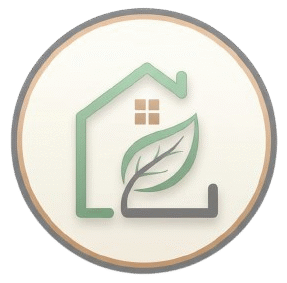In today’s hyper-connected world, we receive countless phone calls every day—from businesses, customer service centers, or sometimes, unknown numbers. One such number that has caught the attention of many people recently is 18337002510. Across social media platforms, forums, and consumer review sites, individuals have been sharing their experiences, concerns, and questions regarding this specific number.
So, what exactly is 18337002510? Is it a legitimate service number, a scam attempt, or just a harmless telemarketing call? In this detailed guide, we’ll uncover the complete story behind 18337002510, explore user reports, discuss possible risks, and explain how to stay safe when dealing with unknown calls.
Understanding What 18337002510 Is
Before jumping to conclusions, it’s essential to understand what 18337002510 represents. Many users report receiving missed calls or automated voicemails from this number, often without any clear identification. In most cases, these calls appear as toll-free numbers starting with “1-833,” a prefix often used by customer service or marketing departments in the U.S. and Canada.
However, not all numbers starting with 833 are trustworthy. Some may be connected to telemarketing campaigns, robocalls, or phishing scams that aim to collect personal information.
Hence, identifying whether 18337002510 is a legitimate number or part of a spam network requires deeper investigation.
Why You Might Be Getting Calls from 18337002510
If you’ve been getting repeated calls from 18337002510, you’re not alone. There are several possible reasons why this number may be contacting you:
a) Marketing or Promotional Purposes
Many companies use third-party telemarketing services to reach out to potential customers. These calls may promote credit cards, insurance, loans, or subscription services. If you’ve recently applied for a product online, subscribed to a service, or entered your number on a website, 18337002510 might be linked to one of those networks.
b) Debt Collection or Customer Verification
Some reports suggest that the number may be connected to financial service providers or verification systems. In such cases, the caller might be trying to confirm your identity or follow up on an account inquiry. However, you should never share sensitive data over the phone unless you are certain about the caller’s authenticity.
c) Scam or Phishing Activity
Unfortunately, scammers often use spoofed or fake toll-free numbers to trick people into sharing private information. The call may sound professional, claiming to be from a bank, government office, or delivery company, but the goal is often to obtain financial or identity information.
d) Random Dialing or Automated Robocalls
Automated dialing systems often generate random phone numbers to test which ones are active. Once you answer, your number may be marked as “live,” leading to more spam calls in the future.
Common Complaints and Reports About 18337002510
When you search for 18337002510 online, you’ll find various user complaints on forums and spam report sites. Let’s look at the most common patterns reported by individuals:
-
Unsolicited Calls: Many users say they receive calls at odd hours, even if they never engaged with any service related to the number.
-
No Response or Automated Voice: Some report that when they answer, they only hear silence or an automated message.
-
Financial Offers or Loan Promotions: A few claim the caller offered quick loans, credit repair services, or investment deals.
-
Fake Identity Claims: In several instances, callers have impersonated officials or bank representatives, asking for personal verification.
Such patterns strongly indicate that 18337002510 may not be a verified customer service line. Instead, it might be used by telemarketers or scammers trying to exploit unsuspecting individuals.
How to Verify the Legitimacy of 18337002510
Before assuming the worst, it’s worth taking some time to verify the number’s legitimacy. Here are a few reliable steps you can take:
a) Use Reverse Phone Lookup Tools
Online reverse lookup tools such as TrueCaller, WhitePages, or SpyDialer can reveal the registered owner or organization associated with 18337002510. If the result shows “Spam Risk,” “Telemarketer,” or “No Name Found,” it’s best to avoid engaging with the number.
b) Check Official Company Websites
If the caller claimed to be from a known business (e.g., a bank or insurance company), check their official website for listed contact numbers. If 18337002510 doesn’t appear, it’s most likely a spoofed number.
c) Contact the Company Directly
Instead of calling the number back, contact the company through their official customer support line. Ask whether they made a call to you. This will immediately confirm whether 18337002510 is legitimate.
d) Look Up Spam Databases
Websites like 800notes.com, WhoCallsMe, and SpamCalls.net compile user reports about suspicious numbers. Searching 18337002510 there can show how others have categorized it—whether safe, telemarketing, or scam.
Possible Risks of Answering Calls from 18337002510
While answering one unknown call might seem harmless, there are hidden risks. Here’s why you should be cautious:
a) Phishing Attempts
Scammers may try to trick you into revealing personal details like your name, address, or banking information. Even simple answers like “Yes” can be recorded and misused for voice authorization scams.
b) Identity Theft
If you share sensitive data—such as your Social Security Number or credit card details—the information can be used for fraudulent transactions or identity theft.
c) Malware or Fraudulent Links
Sometimes, the caller may send a text or email afterward containing malicious links. Clicking those can infect your device with spyware or ransomware.
d) Increased Spam Calls
Answering or calling back confirms your number is active, resulting in more spam calls from different numbers.
What to Do If You Receive a Call from 18337002510
If 18337002510 calls you, don’t panic. Follow these steps to protect yourself and handle the situation safely:
-
Don’t share personal details — Never give out financial or personal information.
-
Hang up immediately — If you suspect the caller is not genuine, end the call without engaging.
-
Block the number — Use your phone’s built-in blocking feature or third-party apps like Hiya or TrueCaller.
-
Report the number — Report the call to the Federal Trade Commission (FTC) or your local cybercrime unit if you’re in another country.
-
Warn others — Share your experience online to alert others who might receive similar calls.
How to Protect Yourself from Similar Scam Calls
To stay safe from numbers like 18337002510, here are a few proactive measures:
a) Enable Call Screening
Modern smartphones (especially Android devices) have call screening features that identify spam calls in real time.
b) Register on the Do Not Call List
If you’re in the U.S. or Canada, add your number to the National Do Not Call Registry. This helps reduce telemarketing calls.
c) Use Verified Communication Channels
Always communicate with businesses through their official apps, websites, or verified contact numbers.
d) Stay Updated on Common Scams
Scammers constantly change tactics. Stay informed about the latest types of scams through official government or cybersecurity websites.
e) Install Security Software
Antivirus and anti-phishing software can protect your device and data from malicious links or spyware.
What If You Already Shared Information with 18337002510?
If you suspect you’ve mistakenly shared sensitive information, take immediate action:
-
Contact your bank — Inform them about the potential compromise so they can monitor suspicious activity.
-
Change passwords — Update all your online banking, email, and social media passwords.
-
Monitor your credit report — Look for unauthorized inquiries or transactions.
-
Report identity theft — Contact local authorities or visit IdentityTheft.gov if you’re in the U.S.
-
Enable two-factor authentication — Add an extra layer of protection to your important accounts.
Legitimate Uses of Toll-Free Numbers Like 18337002510
Not all toll-free numbers are scams. Many companies use them for customer support and marketing. Examples include:
-
Banks and insurance firms for customer verification.
-
Online retailers for order confirmations.
-
Healthcare providers for appointment reminders.
-
Utility companies for bill notifications.
Therefore, it’s important not to assume every 833 or 800 number is dangerous—but always verify before engaging.
Final Thoughts
The phone number 18337002510 has become a topic of curiosity and concern for many people. While some calls from similar numbers may be legitimate, user experiences and reports suggest that this one could be part of an ongoing telemarketing or spam network.
The best approach is to stay vigilant: avoid sharing personal data, use verification tools, and report suspicious calls. In today’s digital age, scams are becoming more sophisticated, but a little awareness can go a long way in keeping you safe.

